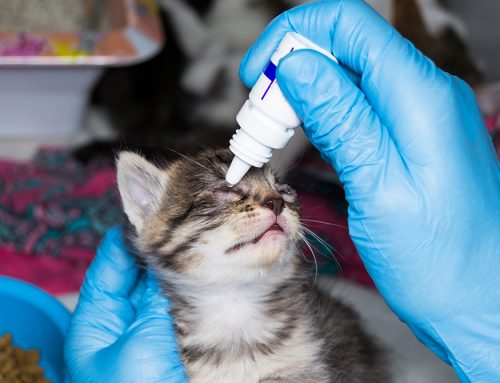What Are Ear Mites?
Ear mites are tiny parasites that live in the ear canals of pets, particularly cats and dogs. They are highly contagious and can cause severe irritation and discomfort. These mites feed on the wax and oils in your pet’s ears, leading to inflammation, infection, and intense itching. The most common type of ear mite affecting pets is Otodectes cynotis.
Signs and Symptoms
Pets with ear mites may exhibit a range of symptoms, including:
- Frequent scratching of the ears: Your pet may constantly scratch at their ears, sometimes causing wounds or bald patches around the ears.
- Head shaking: Pets may shake their heads frequently to try to dislodge the mites.
- Dark discharge: A dark, crumbly substance resembling coffee grounds may be present in the ears. This is a mixture of wax, blood, and the mites themselves
- Ear redness and inflammation: The inner ear may appear red, swollen, or irritated.
- Unpleasant odor: A foul smell may emanate from the ears due to secondary infections.
How Are Ear Mites Diagnosed?
At Mission Veterinary Clinic, a thorough examination of your pet’s ears will be conducted. Ear mites can often be diagnosed by observing the mites directly under a microscope using a sample of ear debris. In some cases, a special otoscope may be used to visualize the mites within the ear canal.
Treatment Options
Treatment for ear mites typically involves:
- Topical medications: These are applied directly to the ears to kill the mites.
- Ear cleaning: Cleaning your pet’s ears is crucial to remove debris and allow medications to work more effectively.
- Systemic medications: In some cases, oral or injectable medications may be prescribed to eliminate the mites and treat any secondary infections.
- Follow-up care: A follow-up visit is often necessary to ensure the mites have been completely eradicated.
Preventing Ear Mites
To prevent ear mites:
- Regular ear checks: Routine examination of your pet’s ears can help catch problems early.
- Keep your pet’s environment clean: Regularly clean bedding, toys, and other items your pet frequently uses.
- Limit exposure: Try to limit your pet’s contact with animals that may be infested with ear mites.
When to Seek Veterinary Care
If you suspect your pet has ear mites, it’s essential to seek veterinary care promptly. Left untreated, ear mites can lead to more severe ear infections, hearing loss, and extreme discomfort for your pet.
Contact Mission Veterinary Clinic
Mission Veterinary Clinic, located in the San Fernando Valley at 16915 San Fernando Mission Blvd, Granada Hills, CA 91344, is here to help. We are an urgent care facility that only accepts walk-ins—no appointments necessary. If you have concerns about your pet’s ear health or suspect ear mites, please visit us or call us at 818-363-8143. Our team is ready to provide the care your pet needs.
This information sheet is designed to help pet owners understand ear mites, recognize symptoms, and seek appropriate treatment. Your pet’s health is our priority at Mission Veterinary Clinic.










Leave A Comment